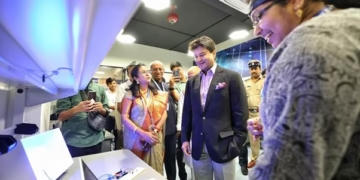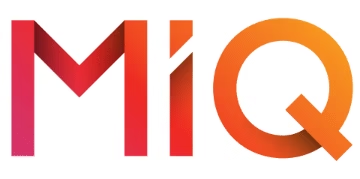The European Commission has fined Qualcomm €242 million for abusing its market dominance in 3G baseband chipsets. Qualcomm sold below cost, with the aim of forcing its competitor Icera out of the market. This is illegal under EU antitrust rules.
Commissioner Margrethe Vestager, in charge of competition policy, said: “Baseband chipsets are key components so mobile devices can connect to the Internet. Qualcomm sold these products at a price below cost to key customers with the intention of eliminating a competitor. Qualcomm’s strategic behaviour prevented competition and innovation in this market, and limited the choice available to consumers in a sector with a huge demand and potential for innovative technologies. Since this is illegal under EU antitrust rules, we have today fined Qualcomm €242 million.“
Baseband chipsets enable smartphones and tablets to connect to cellular networks and are used both for voice and data transmission. This case concerns chipsets complying with the Universal Mobile Telecommunications System (“UMTS”), the third generation (“3G”) standard.
Today’s decision concludes that Qualcomm held a dominant position in the global market for UMTS baseband chipset between 2009 and 2011. This is based in particular on Qualcomm’s high market shares of approximately 60% (almost three times the market share of its biggest competitor) and the high barriers to entry to this market. These include the significant initial investments in research and development to design UMTS chipsets and various barriers related to Qualcomm’s intellectual property rights.
Market dominance is, as such, not illegal under EU antitrust rules. However, dominant companies have a special responsibility not to abuse their powerful market position by restricting competition, either in the market where they are dominant or in separate markets.
However, our investigation found that Qualcomm abused this dominance between mid-2009 and mid-2011 by engaging in “predatory pricing”. Qualcomm sold certain quantities of three of its UMTS chipsets below cost to Huawei and ZTE, two strategically important customers, with the intention of eliminating Icera, its main rival at the time in the market segment offering advanced data rate performance.
This behaviour took place when Icera was becoming a viable supplier of UMTS chipsets providing high data rate performance, thus posing a growing threat to Qualcomm’s chipset business.
The Commission’s conclusion that Qualcomm engaged in predatory pricing during the period investigated is based on:
- a price-cost test for the three Qualcomm chipsets concerned;
- a broad range of qualitative evidence demonstrating the anti-competitive rationale behind Qualcomm’s conduct, intended to prevent Icera from expanding and building market presence.
The results of the price-cost test are consistent with the contemporaneous evidence gathered by the Commission in this case. The targeted nature of the price concessions made by Qualcomm allowed it to maximise the negative impact on Icera’s business, while minimising the effect on Qualcomm’s own overall revenues from the sale of UMTS chipsets. There was also no evidence that Qualcomm’s conduct created any efficiencies that would justify its practice.
On this basis, the Commission concluded that Qualcomm’s conduct had a significant detrimental impact on competition. It prevented Icera from competing in the market, stifled innovation and ultimately reduced choice for consumers. In May 2011, Icera was acquired by US tech company Nvidia, which decided to wind down its baseband chipset business line in 2015.
Consequences of the Decision
The fine in this case of € 242 042 000 takes account of the duration and gravity of the infringement. The fine represents 1.27% of Qualcomm’s turnover in 2018 and is also aimed at deterring market players from engaging in such anti-competitive practices in the future. The Commission has also ordered Qualcomm not to engage in such practices or practices with an equivalent object or effect in the future.
Qualcomm to Appeal European Commission Finding on Decade-Old Chip Shipments
Jul 18, 2019 SAN DIEGO: Finding concerns sales of three chipsets to two customers between 2009 and 2011–
Qualcomm Incorporated (NASDAQ: QCOM) announced that the European Commission’s Directorate General for Competition, after a 10-year investigation, issued a finding that Qualcomm engaged in predatory pricing practices for some sales of three cellular baseband chipsets to two customers during a few calendar quarters between 2009 and 2011, and fined Qualcomm 242 million euros. Qualcomm plans to appeal the finding to the General Court of the European Union. Qualcomm intends to provide a financial guarantee in lieu of paying the fine while the appeal is pending.
“The Commission spent years investigating sales to two customers, each of whom said that they favored Qualcomm chips not because of price but because rival chipsets were technologically inferior. This decision is unsupported by the law, economic principles or market facts, and we look forward to a reversal on appeal,” said Don Rosenberg, executive vice president and general counsel of Qualcomm.
“The Commission’s decision is based on a novel theory of alleged below-cost pricing over a very short time period and for a very small volume of chips. There is no precedent for this theory, which is inconsistent with well-developed economic analysis of cost recovery, as well as Commission practice. Contrary to the Commission’s findings, Qualcomm’s alleged conduct did not cause anticompetitive harm to Icera, the company that filed the complaint. Icera was later acquired by Nvidia for hundreds of millions of dollars and continued to compete in the relevant market for several years after the end of the alleged conduct. We cooperated with Commission officials every step of the way throughout the protracted investigation, confident that the Commission would recognize that there were no facts supporting a finding of anti-competitive conduct. On appeal we will expose the meritless nature of this decision.”















































